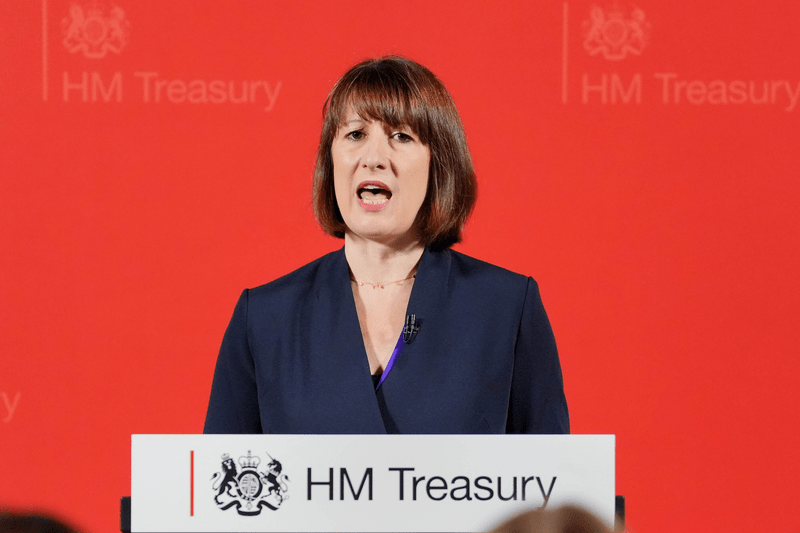Sustainable finance will be one of the UK Government’s five “priority growth opportunities,” according to Chancellor Rachel Reeves. She set out her thinking in her first Mansion House speech on November 14, 2024.
Her speech followed Prime Minister Sir Keir Starmer’s emissions pledge at COP29, roundly reaffirming the UK Government’s commitment to a sustainable future.
To help achieve the ultimate aim of “making the UK a global leader in sustainable finance”, the Chancellor announced a package of sustainability reforms.
Consultation on a UK Green Taxonomy
The UK Government has published a consultation on the UK Green Taxonomy, seeking views on “whether a UK Green Taxonomy would be additional and complementary to existing sustainable finance policies, including in supporting market participants to make sustainable investment decisions, and the specific market and regulatory use cases which facilitate this.”
The consultation, which has a deadline of February 6, 2025, will inform an assessment of the value of implementing a UK Green Taxonomy. In particular, the consultation is seeking views on: (a) market and regulatory use cases for a UK Taxonomy; and (b) how to maximize the usability of a UK Green Taxonomy.
Progress on a UK Green Taxonomy has been much delayed, and the UK Government wants to learn from other taxonomy implementations.
This is a significant opportunity to be part of the discussion on the UK’s approach and we would very much encourage readers to participate. It is crucial that any UK Green Taxonomy is interoperable with other international measures and that the UK Government is made aware of the challenges industry has faced in implementing, for example, the EU Taxonomy.
Regulating ESG ratings providers
Further to the UK Government’s March 2023 consultation on the regulation of ESG ratings providers, the UK Government has published its feedback response. The feedback response sets out the details of the scope of the regulatory regime, including what activities will be captured.
The UK Government also published a draft statutory instrument, with a deadline for technical comments of 14, January 2025. The UK Government will aim to lay the legislation before Parliament early in 2025, after which the FCA will consult on the regulatory regime and rules.
The overall process of developing and implementing the requirements is expected to take up to four years, so this is one for readers to keep an eye on as the regime progresses.
Co-launch of the Transition Finance Council
The Chancellor also announced that the UK Government will be co-launching the Transition Finance Council with the City of London Corporation.
The Transition Finance Council will be tasked with taking forward recommendations from the recently published Transition Finance Market Review, which is an independent market-led review commissioned by the UK Government aimed at establishing how to help high-emitting UK companies access capital to decarbonize and deliver the UK Government’s net zero ambitions.
This is the latest step on the road to the UK realising its ambition of becoming a global hub for transition finance, and follows a number of other significant announcements in this space, such as the Government’s commitment to consulting on introducing transition plan requirements for the UK’s largest listed an private companies, the publication of the Transition Plan Taskforce’s final disclosure framework and final working report, and the FCA’s planned consultation on expectations for listed companies’ transition plan disclosures.
Voluntary carbon and nature markets
The UK Government has published a policy paper setting out principles on voluntary carbon and nature market integrity. The principles – which are voluntary – respond to concerns about the quality and integrity of some credits available in the market and how they are used to make claims about environmental impact.
The principles set out what the UK Government considers as high-integrity credits and how these can be used responsibly and appropriately by buyers as part of meeting their climate or environment goals.
In its simultaneously published notice Raising integrity in the voluntary carbon and nature market, the UK Government announced that it will consult on the proposed implementation of these principles and seek views on how they could be applied through guidance, standards and regulatory oversight.
COP29 announcements – emission reduction targets and climate finance
At COP29 (which you can find more information on at the CMS COP29 hub), the Prime Minister announced that he wants the UK to be “on the frontline” in addressing climate change.
As well as citing measures already taken by the UK Government, such as closing the UK’s final coal power plant and launching Great British Energy (a new, publicly owned, clean energy company), he confirmed the UK is “three months ahead” of its target to reduce greenhouse gas emissions by at least 81% by 2035 (against 1990 levels). He also said the UK Government will honour the previous government’s pledge to provide £11.6 billion ($14.6 billion) of climate finance between April 2021 and March 2026.
The Prime Minister also welcomed the launch of the Climate Investment Fund Capital Market Mechanism (CCMM) on the London Stock Exchange. The CCMM – which was established in July 2024 and has the World Bank as its Treasury Manager – is an issuer that raises private sector capital in the international capital markets to mobilise finance for climate action and sustainable development. The listing of CCMM’s bond issuance program on the London Stock Exchange concludes the design and structuring phase of CCMM.
Laura Houët is a partner in the Financial Services and Products team and CMS’ Co-Head of ESG. Oliver Williams is an associate in the Financial Services Regulation team at CMS.














